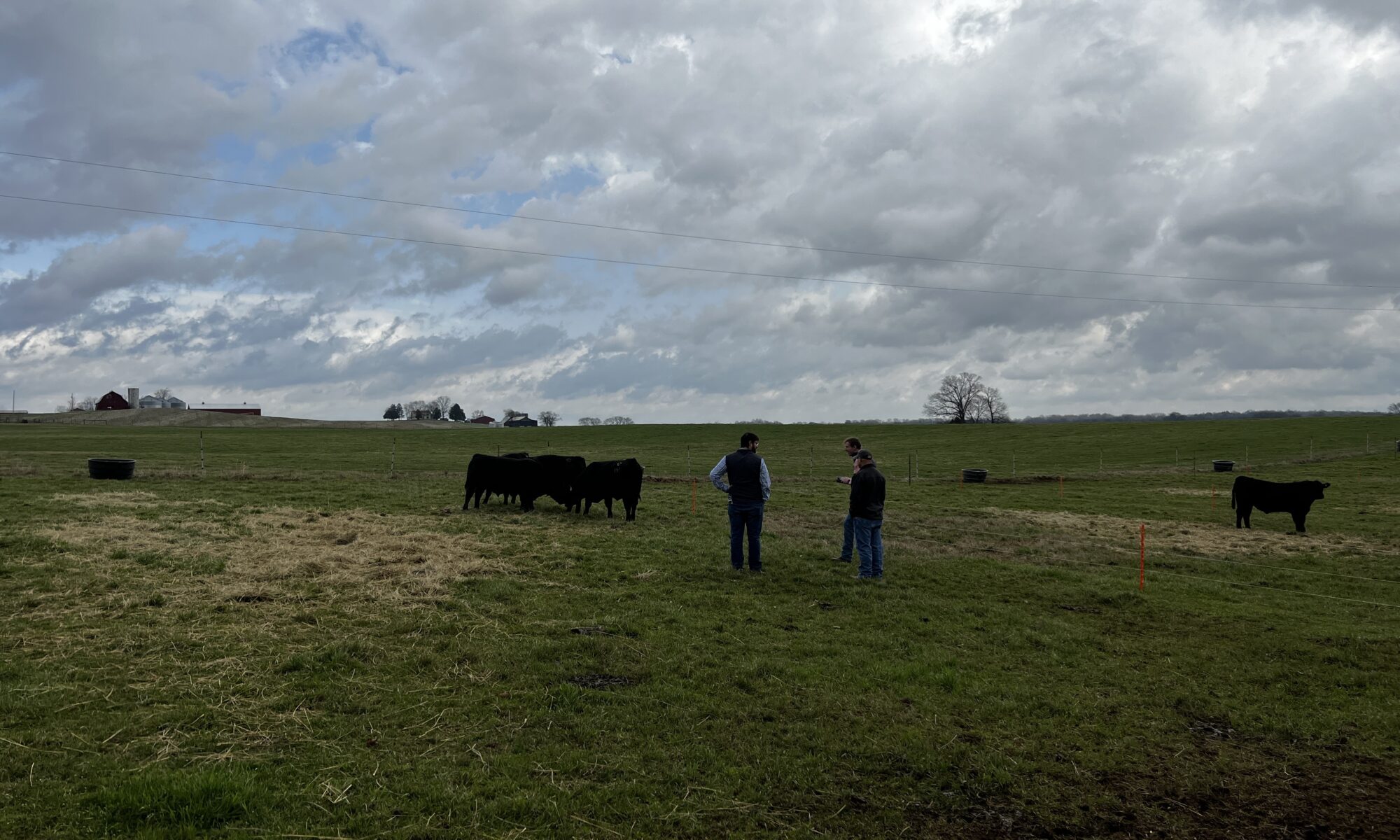

Dr. Saulo Zoca
Assistant Professor and Beef Cattle Reproduction Specialist
Department of Animal Science
P: 931-486-2129
Co-Author: Dr. Lacey Quail, Extension Livestock Management Specialist, Department of Animal Science, North Dakota State University
In recent years, we have experienced severe cold weather in Tennessee and other southern states. Usually we are more worried about heat stress in our animals, but what can these cold weathers do to your bull fertility? Our herd sires are a necessary piece of the puzzle and even though they are resilient animals, there are a few things to keep in mind when it comes to cold weather and herd sires.
In order for a bull to produce healthy sperm cells, the testes that are housed in the scrotum need to be a few degrees cooler than the rest of the body. The bull has the ability to regulate testicular temperature in several ways, one of which is by contracting or relaxing the cremaster muscle to bring the testes/scrotum closer to or further from the body on cold or warm days, respectively. However, extreme cold weather like we experienced in recent years brings the challenge of scrotal frostbite, even with the bull’s temperature regulation system in place.
The testes play a key role in male reproduction as they produce mature sperm cells, which are then stored in the epididymis at the base of the testes. Even though they are mature, these sperm cells are still influenced by their environment, particularly stress caused by changes in temperature. Frostbite damages the external tissue of the scrotum (usually near the bottom) in such a way that inflammation and swelling is noticeable within a few days. Since part of the inflammatory response is heat, this can very easily cause heat stress to mature sperm, leaving the bull temporarily infertile until he can produce additional sperm. In more severe cases, frostbite may cause adhesions between the testes and the scrotum, disrupting long-term sperm production and leaving a bull permanently infertile. While frostbite may not always cause scabbing, if you notice scrotal scabs or scaring, that is cause for concern when it comes to the potential breeding soundness of a bull.
A research study in Canada sought to determine the impact of scrotal frostbite on semen quality to provide some clarity to how permanently frostbite may affect a bull’s fertility. A breeding soundness exam was performed on over 1500 bulls from January through June to see if and how semen quality changed after scrotal frostbite occurred. Most cases of frostbite occurred in January or February, and the degree of frostbite differed. Some bulls had slight frostbite (scabs less than 2 cm in diameter), while others had severe frostbite (scabs greater than 2 cm in diameter) at the base of the scrotum. Of the bulls with slight frostbite, only 3% were considered unsatisfactory breeders from January through June. However, of the bulls with severe frostbite, the outcome was much different. While some bulls with severe frostbite recovered and were able to pass a breeding soundness exam by June (21%), the majority (60%) of bulls with severe frostbite were considered to be unsatisfactory breeders. Importantly, there was no relationship between how often frostbite occurred and scrotal circumference or body condition score, indicating that bulls in heavier condition were just as prone to scrotal frostbite. A North Dakota research study found similar results. While bulls with mild frostbite were likely to pass a breeding soundness exam (90% satisfactory), bulls with severe frostbite were typically not (89% unsatisfactory).
Because the sperm production cycle takes about 61 days in bulls, it’s important to wait the appropriate amount of time before having a bull assessed with a breeding soundness exam. If you notice frostbite or scabbing in February, be sure to wait until April before having a veterinarian perform a breeding soundness exam. Before then, the semen quality during the exam may be poor even if the bull may recover if given additional time.
Prevention is key when it comes to scrotal frostbite. If you have experienced frostbit in your bulls or if an extreme cold weather is forecasted in the future, a heavy bedding such as straw or corn fodder combined with shelter from the wind goes a long way to ensuring your bulls remain herd sires. Risking the soundness of your bull is risking your profit potential. Schedule a breeding soundness exam with your veterinarian, regardless if your bull experienced frostbite or not, 60 days before your breeding season to ensure your bull is satisfactorily fertile. If not, that still gives you time to source additional sires if needed.